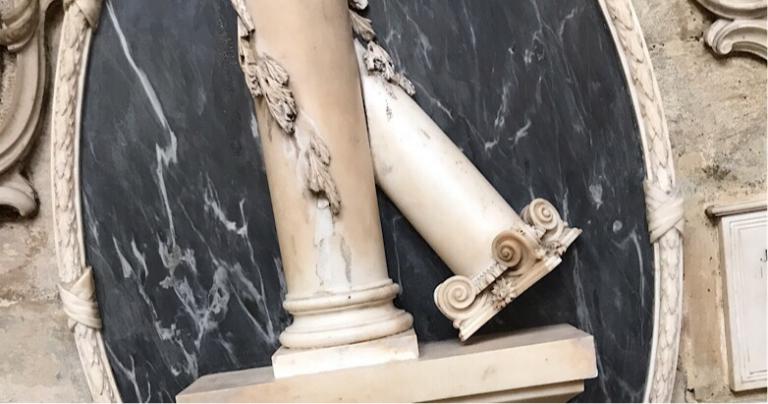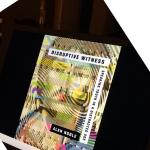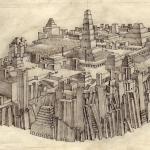 Education is not getting a credential, but making the soul more like it should be or so Plato suggested at the very start of the Western discussion of the nature of learning. The soul, Plato tells us, as it is, is not so good. Plato argued for the immortality of the soul, accepted what reason demonstrated, but knew being deathless was not good enough. A zombie is undead, but lacks life and so lives in ugliness. Plato, as a forerunner of Jesus, dimly saw that there was hope.
Education is not getting a credential, but making the soul more like it should be or so Plato suggested at the very start of the Western discussion of the nature of learning. The soul, Plato tells us, as it is, is not so good. Plato argued for the immortality of the soul, accepted what reason demonstrated, but knew being deathless was not good enough. A zombie is undead, but lacks life and so lives in ugliness. Plato, as a forerunner of Jesus, dimly saw that there was hope.
We must change. The Good is out there, creating longing, and so we wish to be more than we are. The wish is mother of desire and the desire pushes us Goodward. This process is not so simple, however. We are not as we should be.
At the end of his masterwork Republic, Plato has Socrates and his brightest student Glaucon discussing the nature of the human soul. Other discussants listen, slowly silenced by the difficulty of the truth that we are not what we wish to be. Glaucon and Socrates continue to look for justice, improvement in their own souls. Education, real education, will repair what life and our choices have done to our souls. Here is what Socrates says:
“Well then, that soul is immortal both the recent argument and the others would compel us to accept. But it must be seen such as it is in truth, not maimed by community with body and other evils, as we now see it. But what it is like when it has become pure must be examined sufficiently by calculation. And one will find it far fairer and discern justice and injustice and everything we have now gone through more distinctly. Now we were telling the truth about it as it looks at present. However that is based only on the condition in which we saw it. Just as those who catch sight of the sea Glaucus would no longer easily see his original nature because some of the old parts of his body have been broken off and the others have been ground down and thoroughly maimed by the waves at the same time as other things have grown on him—shells, seaweed, and rocks—so that he resembles any beast rather than what he was by nature, so, too, we see the soul in such a condition because of countless evils. But, Glaucon, one must look elsewhere.”*
It is no accident that the sea god Glaucus is mentioned. Glaucon is a handsome and brilliant young man, but his soul (like all our souls) is marred. Socrates uses the sound-alike to make a point: we are like Glaucus buffeted by the trash of the world, cut, marred, until our form is changed. Our souls are hardly human in appearance, even if we look fine on the outside. The “countless evils” of the world harm us and so we must look elsewhere.No man would live forever in a world as it is, because the pain would be too great. There is another world and that world is eternal and perfect: the world of ideas. We cannot touch that world, it is buffered from being buffeted by our folly.
If you begin poorly, as I did, then you are thankful for mercy and grace. You hope that over time who you are becomes more like what you should be, less like what you were. Education can do this much: restore good form. The hard things our learning demands, the difficult work of my good teachers like Balentine, Larkin, Shults, Geier, Modrak, Trigg, and Johnson was to take what had been malformed and help me reshape my soul.
This is very much.
I think, as a Christian, that this is not enough. The Good is utterly Good and we are not. We need a deeper change than any education can give us. Somehow we must be born again. Plato sees this truth, but does not see how we can choose more that better. The divine change, the new soul that is a seed of godliness, is not available.
Ah, master Plato, Christmas is coming.
————————-
*Translation by Alan Bloom. Based on a devotional for The College at The Saint Constantine School.












